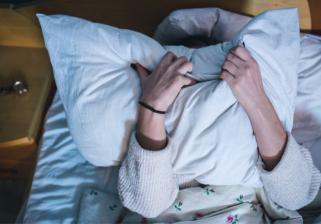Sleeping Problems
Children often experience sleep problems as a part of normal childhood development. Common issues include trouble falling asleep, trouble staying asleep and nightmares. Less common (but in most cases, still considered normal) sleep problems include sleep talking, sleepwalking and night terrors. Night terror episodes can be especially alarming, as the child may appear to be awake and show signs of intense fear. However, when awakened, the child often will have no memory of the event.
In most cases, these common sleep problems will either resolve on their own or are able to be managed by creating a healthy sleep routine (see Tips to Improve Sleep).
Normal Developmental Sleep Patterns:
| Age Range: | Normal Hours of Sleep: | Normal Sleep Patterns: |
|---|---|---|
| Babies | 14-17 hours of sleep per 24-hour cycle. | It is common for babies to struggle to sleep through the night. |
| Toddlers | 10-13 hours of sleep per night. | Toddlers typically take 1-2 naps per day. |
| School Age Children | 9-12 hours of sleep per night. | |
| Teenagers | 8-10 hours of sleep per night. | This age group will often experience a change in circadian rhythms, causing their body to want to stay up later, and sleep in. |
When to Seek Help:
If a child’s sleep problems do not improve, are unusual for their age, or are negatively affecting daily life (i.e. daytime sleepiness, constant snoring, restlessness, fear of going to sleep, causing injuries or other dangerous behaviors), it may be time to contact a healthcare professional.
A healthcare professional will evaluate the frequency, intensity, and duration of the sleep issues experienced by the child. They will also rule out any related health conditions or medication side-effects that may be contributing to the problem.
Parents and caregivers can help by keeping a log of sleep activity and recording any issues that occur. This will help the healthcare provider create a plan to improve the child’s sleep problems. Depending on the specific needs of the child, next steps may include consulting a sleep specialist, medication trial, recommending supplements, or ordering a formal sleep study.
